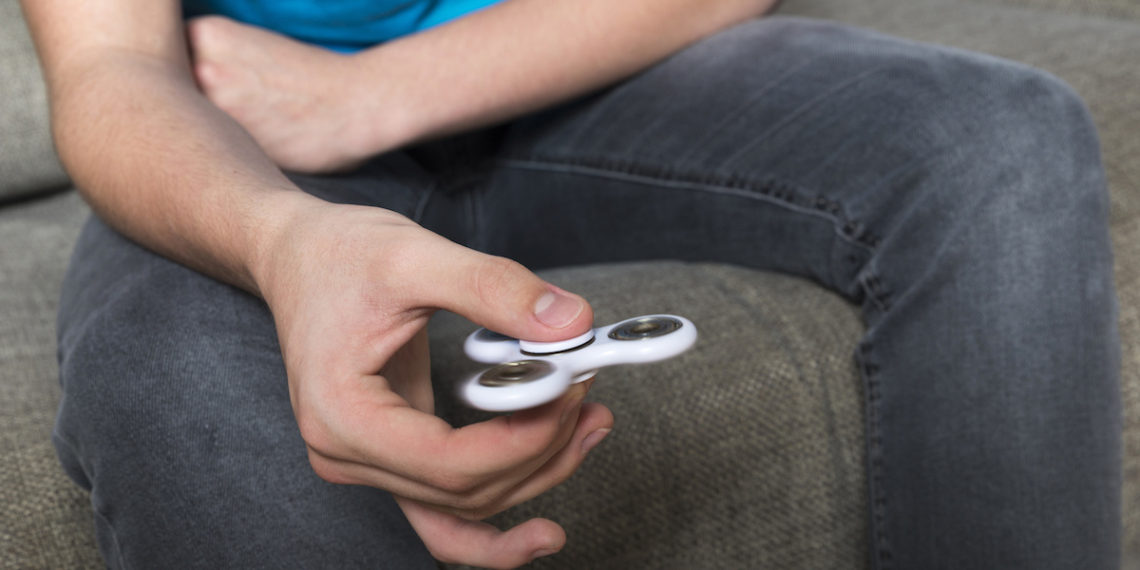
*The following is excerpted from an online article posted on Business Insider.
Fidget spinners are everywhere these days. You can buy them on any street corner for a few dollars, and both kids and adults are obsessed with them. The companies that make these hot new gadgets claim they help relieve stress and anxiety and can help kids with ADHD focus. David Anderson, PhD, a clinical psychologist from the Child Mind Institute, recently debunked the claims in a video interview.
They’re a toy. They’re a gag gift. Not so much a treatment.
Fidget spinners are a new craze similar to the slime craze earlier this year, where you have a couple arms, a little device that spins while you hold it. It has kind of this gyroscopic feel where you’re balancing it, maybe you could do some tricks with it.
They’re easy to buy, they’re on every street corner, and there’s a sense that, you know, to be cool you need to have one.
So the great thing about fidget spinners is that they’ve brought the discussion for what works for ADHD or what might work for anxiety or stress relief to the forefront, which is great for us to have. The only issue is they have about as much scientific evidence for stress relief or for treatment of anxiety and ADHD as a pet rock.
They’re a toy. They’re not a treatment.
So the thing is there’s no psychologically recommended gadget. There are only gadgets that fall in line with scientifically-based psychological principles.
So the idea is for a kid experiencing stress, or anxiety, or depression, or ADHD, we might create, say, a coping kit for that child, when they’re experiencing certain amounts of stress. That might include music to listen to. It might include a stress ball tho squeeze. It might include something to remind them to breathe or to practice a mindfulness strategy.
But it’s really on a case-by-case basis. There’s no universal recommendations of a particular toy for stress relief or a particular object for stress relief. Fidget spinners have absolutely no scientific studies behind them, showing any sort of effectiveness in treating this. And the major reason for that is that they’re a fad.
They’ve only just come about, and scientific studies take time and money. So if something is really new, and it’s making a lot of noise, it’s unlikely to be scientifically supported. And if we’re talking about treatment for anxiety, or ADHD, or for stress relief, we wanna go after things that have a bit more scientific support, like cognitive behavioral strategies for managing their symptoms.
I think it’s always an issue when any company makes a sensational claim about a new product that provides treatment that isn’t backed by science for mental illness. Fidget spinners are low in terms of that hierarchy, partly because we don’t necessarily think they’re doing any harm. Adults don’t seem swayed in thinking that this is a treatment, and it mainly seems like the kids have picked up on this argument that it’s helpful in stress relief, as an argument they might have with their teachers or with their parents, and nobody’s buying.
Source: Business Insider
http://www.businessinsider.com/do-fidget-spinners-help-with-adhd-focus-children-clinical-psychologist-psychology-toys-2017-5
Source: Home Word






